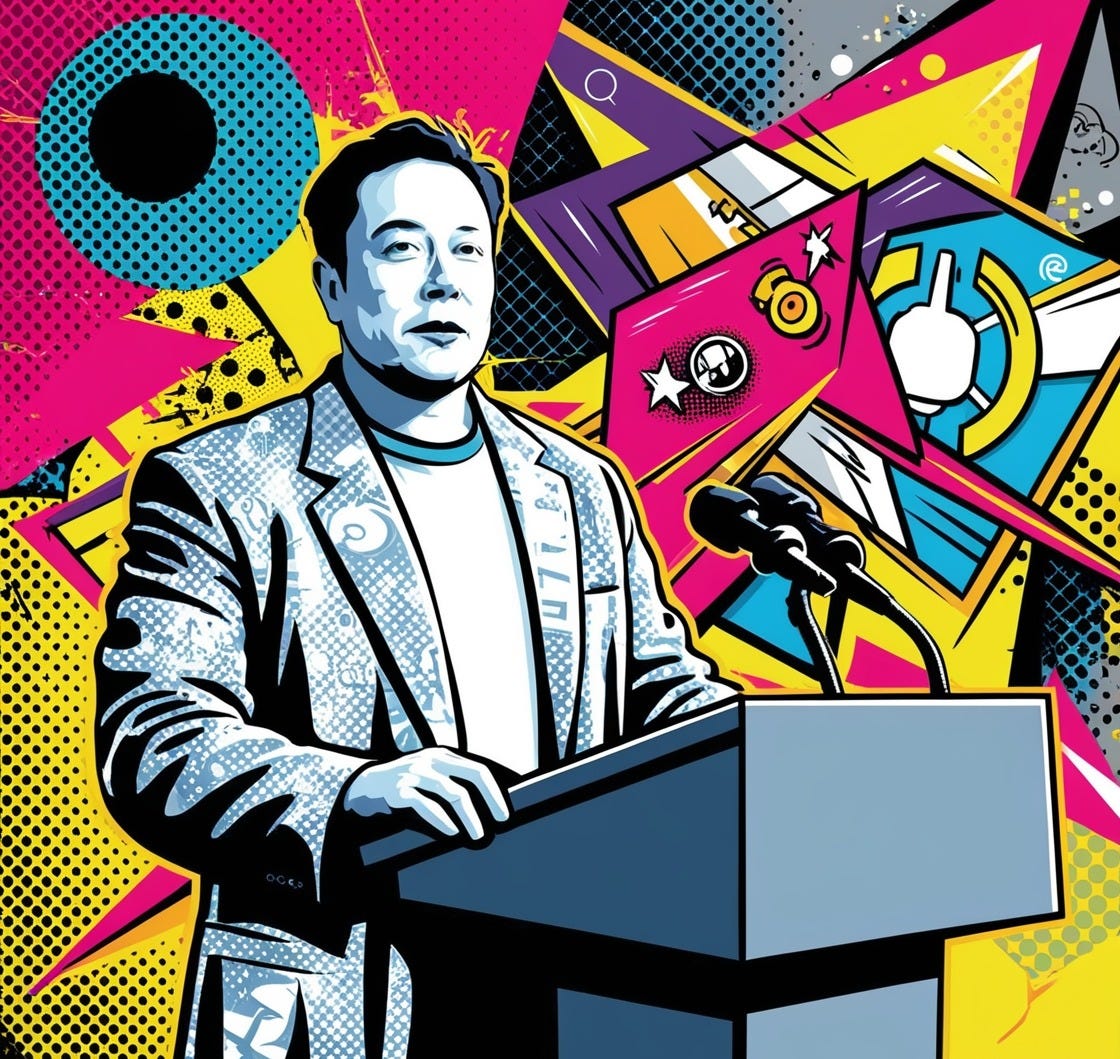What Trump's AI plans could mean for all of us
Here's what you need to know about the new tech landscape, which heavily features Elon Musk
As we process the news of Donald Trump's election victory, many of us are wondering how the new regime will affect the technology we use every day. From the AI tools that help us at work, to the social media apps on our phones, significant changes could be coming to our digital world.
The new tech landscape
Elon Musk, the world's richest person and founder of xAI, is positioned to be influential in shaping AI policy under the new administration (which, let’s be honest, could be a major conflict of interest). At a recent tech conference in Saudi Arabia, Musk warned that “AI is a significant existential threat and something we should be paying close attention to.” His criticism of the "woke, nihilistic philosophy" of San Francisco-based AI companies suggests potential shifts in how AI might be developed and regulated.
What this means for our daily tech use
The incoming administration plans to tackle what they're calling “woke AI“. This POV could impact many aspects of our digital lives:
Job application tools powered by AI might change, affecting hiring processes.
Social media algorithms could be adjusted to reduce "woke" content. (Merriam-Webster defines "woke" as being “aware of and attentive to important societal facts and issues, especially around racial and social justice.”)
Biden-era AI safety regulations may be rolled back.
Government tech contracts could shift, favouring different companies and approaches.
What we might see
The new administration's approach to AI regulation could lead to:
Increased transparency requirements for AI companies, including disclosure of training methods.
Political balance evaluations for AI systems.
Fewer restrictions on energy consumption for AI development.
New data privacy policies, potentially affecting user rights.
Whether these changes will lead to faster AI advancements or spark new oversight concerns, they are likely to alter how we interact with technology daily.
Practical steps to consider
For Canadians, changes in US policy could influence everything from the AI tools we use at work to how our personal information is protected. While we may not have a direct say in US policy decisions, we can stay informed and prepare for the changes ahead. Here are some ways to prepare:
Protect Your Data
Regularly back up important files
Use privacy protection tools
Pay attention to how AI is being implemented at work
Stay Informed
Track policy updates that could affect your industry
Understand the potential impact of new regulations on your privacy
Monitor changes in workplace technology policies
Biweekly disruptions
Despite uncertain risks, many turn to AI like ChatGPT for mental health (Washington Post) AI-powered chatbots are increasingly being used for mental health support despite concerns about their clinical effectiveness, data privacy, and potential risks, as highlighted by a recent legal case and warnings from experts.
OpenAI nears launch of AI agent tool to automate tasks for users (Bloomberg) OpenAI is set to launch a new AI tool called Operator that can handle complex tasks like booking travel or writing code directly on a user's computer. This marks a shift towards "agent" AI software that can perform multi-step actions with minimal human input, as tech giants like Microsoft and Google are developing similar tools.
Robot that watched surgery videos performs with skill of human doctor (HUB) Researchers have trained a surgical robot using video footage of real surgeries, allowing it to perform tasks as skillfully as human surgeons. This breakthrough in imitation learning marks a significant step toward fully autonomous surgical robots, potentially reducing medical errors and improving precision.


